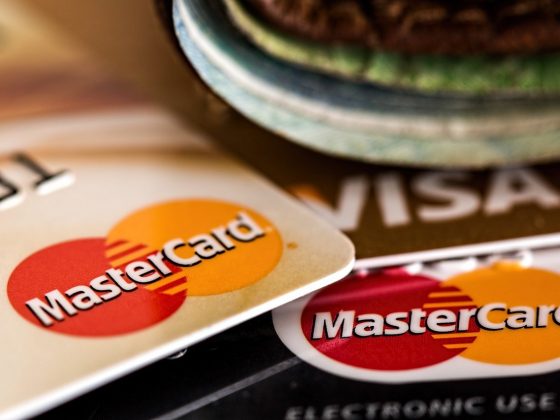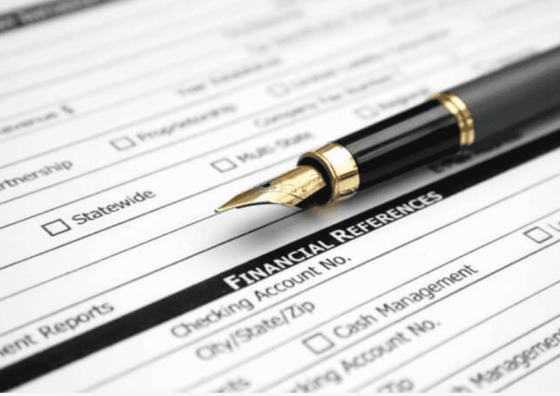Credit scores are designed to show lenders whether or not they can trust you to pay what you borrow. If you’re just getting started, or if you’ve just turned 18, it’s likely that you have very little or no credit history at all, which means credit bureaus have no information to go off of yet.
What can you do to show them you’re a credible borrower?
Let’s dive deep into everything you need to know about your initial credit score.
What Credit Score Do You Start With?
Chances are you will most probably start with a credit score around 600, despite the fact the FICO score range starts at 300.
How is this possible?
Many people believe that you start off with the top score and only lose points if you do something wrong, but this is not the case. Others believe that you start off from zero and build your score up, but that’s not quite accurate either.
A credit score will always be based on your credit history. Whatever your credit reports show will be reflected on your credit score.
So, what credit score do you start with at 18?
Credit scores don’t really depend on someone’s age. Even if you’re 50 years old, if you’ve never had a credit card or taken out a loan before, credit bureaus have no way of knowing how reliable you are as a borrower. Therefore, they can’t give you a credit score just yet.
To give you your initial score, FICO requires you to have a credit account that’s been open for at least half a year. The better you handle your credit during that initial period, the better your starting FICO score will be.
That said, while we don’t all start off with the worst possible score, it’s also very unlikely you’ll get a very good mark based on a six-month credit history alone.
Credit scores use your credit report data to determine how good you are at paying back the money you borrow. So, if there isn’t much information on your account yet, your score simply has no grounds to be very high.
What credit score do you start off with, then?
You’re likely to start off with a score slightly above the 600 mark, and then it’s just a matter of building it up.
For context, FICO scores range from 300 to 850. As a general rule, anything above 740 is very good, whereas anything below 580 is considered “very poor”.
The FICO scoring system considers the following:
- whether or not you make timely payments (35%),
- how much of your revolving credit you use (30%),
- how long your credit history is (15%),
- what types of loans you’ve taken out (10%), and
- how often you apply for a new line of credit (10%).
All of these data factors in your credit score at any given time, which is why your initial number isn’t that high.
How to Increase Credit Score Ratings
If your credit score isn’t quite the number you were hoping for, you can take some steps to boost it up. The key to enhancing your credit score is to prove that you are a reliable debtor — i.e., someone who will pay back a loan in full and within the agreed timeframes.
Here are our recommendations:
- Make sure all your information is up-to-date. Monitoring your credit is always a good idea. Access your credit report and ensure all the information on it is accurate.
- If you don’t have one yet, take out a credit card. This is one of the easiest ways to build up your financial history. Just make sure you find out whether or not you actually qualify for the card you’re considering before applying. And, of course, handle it responsibly — don’t use the card to pay for something you couldn’t afford otherwise.
- Make all your payments on time. If you don’t, they’ll be registered as late or missed payments, which will impact your credit score negatively.
- Avoid making new credit applications frequently. No matter what credit score you start out with, whenever you apply for a new line of credit, your credit report will undergo a hard inquiry. Each of these usually costs you about five points off your credit score — which, granted, isn’t all that much, but it isn’t exactly conducive to boosting your numbers either.
If none of this is working, though, you can consider contacting a credit repair company. It may take some time and money, but experts can certainly offer you personalized guidance and help you dispute unlawful transactions.
Conclusion
So there you have it — everything you need to know about your initial credit score!
We hope this gives you a better understanding of how credit scores work and what you can do to keep those numbers up.
As you see, a good credit score is mostly the result of continuous on-time payments. So, as long as you’re diligent and patient, you’ll have no trouble getting an 800+ score down the line.
FAQs
Why do credit scores start at 300?
It’s not that everyone starts off with a 300 credit score, but that 300 is the lowest a FICO score can ever be.
FICO factors in various data — like your payment history and your credit mix — to calculate your credit score. According to this scaling system, anything in the 300-579 range shows a “very poor” credit management.
How long does it take to get a 700 credit score?
There’s no exact timeframe. As a general rule, though, the longer your credit history is, the easier it’ll be to surpass the 700 mark — which unfortunately means that a good credit score takes time to build.
What is your credit score when you have no credit?
No credit history means no credit score. In other words, if you’ve never signed up for a line of credit or taken out a loan, credit bureaus have no way of knowing how good you are at paying your debts.
So, what credit score do you start with? There’s no default initial number, though it will probably be around 600. It’ll depend on how well you handle your credit within the first six months of opening your account.






